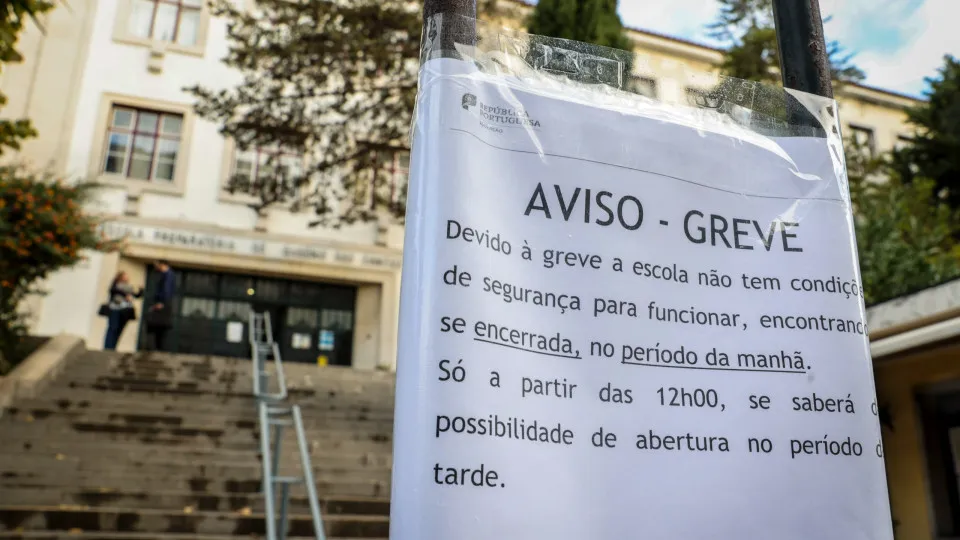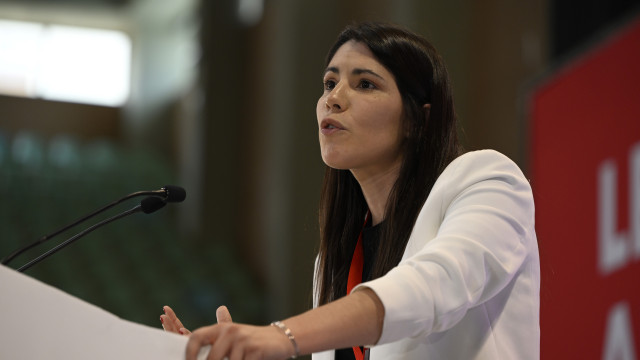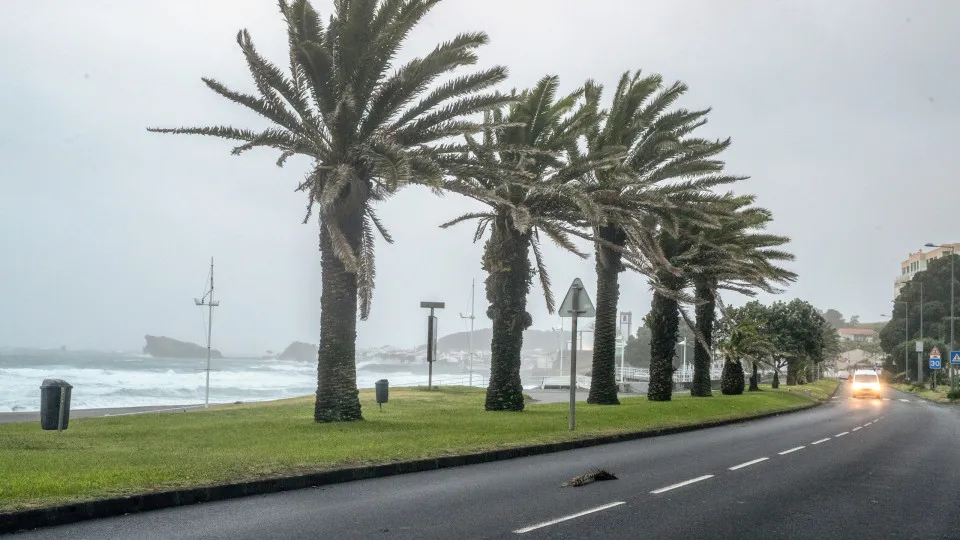
The approximately one thousand students of the Padre António Vieira secondary school in Lisbon found the gates closed this morning. Inside, some workers who did not join the strike for better working conditions were present. However, they were insufficient to keep the Alvalade neighborhood school open.
Not far away, at the São João de Brito primary school, the situation was the same. Gates were closed, and an A4 sheet was taped to the gate, warning of the effects of the strike. Information circulated by word of mouth and through WhatsApp groups. By 8:30 AM, the sidewalk in front of the school was deserted again.
However, a few minutes later, children accompanied by their guardians began arriving again. They were all students of class 4-A.
“Yesterday there was also a strike, and the school didn’t open. Only they had classes because they will go to the Pavilhão do Conhecimento every day this week,” explained Luís Borges, father of Carolina, regarding the protest called for Thursday by the National Union of State Workers, Municipalities, and Entities with Public and Social Purposes.
Simão Martins, from Carolina’s class, was well aware that today might be different because “the bus might be missing, the assistant might be missing, the teacher or the canteen staff might be missing.”
“I want to stay with my grandpa today; I’ve already been to the Pavilhão do Conhecimento the rest of the week,” admitted the nine-year-old boy who arrived at school with his grandfather Pedro.
Soon after, the driver arrived with the bus, leaving Simão slightly disappointed, but shortly thereafter, a school official announced that there would be no classes for 4-A today either.
The news brought cheers of joy from the children, but some parents were concerned.
“I can’t really stay with her, but since her sister goes to another school in Forte da Casa and also didn’t have classes, I might take her home, and they can stay together. But I know it’s very difficult for some parents to manage,” explained Luís Borges, noting that the sister is 15 years old.
Renato Ferreira, a supporter of the workers’ struggle, worries about the lost learning opportunities for his son Vasco, a classmate of Simão and Carolina: “Fortunately, this year hasn’t been the worst. There were years when it was almost every week, causing some difficulties, but as I said, I understand the reasons for the strike.”
However, Renato also understands that for many, the biggest problem is finding alternatives for children without classes. “We can’t leave them on the street,” he emphasized.
At Eugénio dos Santos school, several teachers arrived today with their children. A sign at the main gate indicated that the school was closed in the morning due to “a lack of safety conditions to operate.”
One of the teachers leaving Eugénio dos Santos mentioned to Lusa that she was going to teach at the Rainha Dona Leonor secondary school but had to bring her daughter because the girl’s school was closed.
“Rainha Dona Leonor never closes during strikes. It’s always open and functioning normally,” lamented a 10th-grade student.
In Telheiras, the scene was similar to that in the Alvalade neighborhood. The unions calling for the strike reported that the strike is being felt across the country.
Elsewhere in the capital, near the António Arroio Artistic School, which was also closed, the Secretary-General of the National Teachers Federation (Fenprof), Feliciano Costa, praised the strong adherence of the workers at 8:00 AM.
“We have closed schools in Viseu, Covilhã, Almada, Sintra, Vialonga, even in the city of Lisbon,” reported the Fenprof leader, noting that the strike had a “considerable impact” today, with schools where only one or two teachers appeared.
In addition to education, disruptions are expected in health services, public transport, garbage collection, and other public administration sectors affected by the Common Front strike against the government, which they accuse of degrading working conditions and underfunding public services.
The increase in salaries, the appreciation of careers, the reestablishment of public employment bonds, and the defense of public services are also reasons for calling the strike that covers all state workers.




